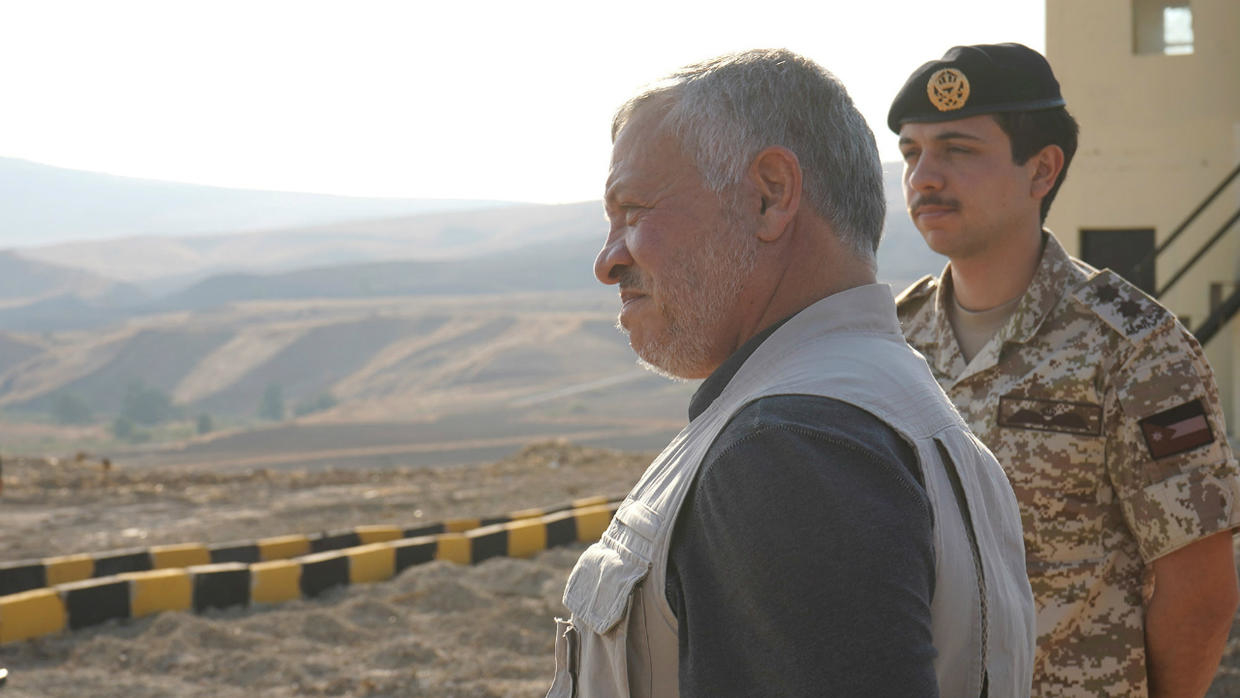Jordan-Israel treaty threatened by annexation plan
https://arab.news/v9bes

Jordanians and Israelis have been left wondering what exactly King Abdullah meant by his stern warning to Israel last week that moving forward with the annexation of parts of the West Bank “could lead to a massive conflict with Jordan.” In an interview with German magazine Der Spiegel, he said: “I don’t want to make threats and create an atmosphere of loggerheads, but we are considering all options. We agree with many countries in Europe and the international community that the law of strength should not apply in the Middle East.”
King Abdullah admitted last year, on the eve of the 25th anniversary of the signing of the peace treaty between the two countries, that bilateral relations were at their lowest point. And, last September, he warned that, if Israel went ahead with the annexation of the Jordan Valley — as pledged by Prime Minister Benjamin Netanyahu — it would have a direct impact on the Jordanian and Egyptian peace treaties with Israel. But this was the strongest warning to Israel he has made in recent memory.
The king’s strong words, calculated as they were, coincided with a crucial visit to Israel last week by US Secretary of State Mike Pompeo on the eve of the formation of a new Israeli government headed by Netanyahu. The US position on the issue of annexation remains unclear. It is embedded in Donald Trump’s peace vision that was released in January and rejected by the Palestinians as well as Arab countries, but multiple sources have suggested that Pompeo urged Netanyahu not to move ahead with the controversial, not to mention illegal, move at this stage. That is not to say that the US has reversed its position on annexation. But sources revealed that the US has given the Palestinians a few crucial months to engage in peace negotiations with Israel — or else.
It is also suggested that annexation could take place in two stages: One that aims at extending Israeli sovereignty over key Jewish settlements in the West Bank, including parts of the so-called Area C, as early as July and no later than September; and a second that is more contentious, with the annexation of the Jordan Valley, which constitutes more than 30 percent of the West Bank’s area.
The latter is seen as a direct challenge and threat to Jordan. It signals the death of the two-state solution, ushering in multiple scenarios, including the collapse of the Palestinian Authority, the forced settlement of Palestinian refugees in host countries like Jordan, and the revival of Israeli far-right claims that Jordan is an alternative Palestinian state. These scenarios constitute an existential threat to the national security of Jordan — a red line for the Jordanian monarch.
But what would Jordan do and what did King Abdullah mean by a “massive conflict?” The peace treaty had delineated the borders between Israel and Jordan and excluded the Jordan Valley as a common frontier. It was understood that the Jordan Valley would constitute the border between the future Palestinian state and the Hashemite kingdom. The annexation of the Jordan Valley by Israel would be seen as a direct violation of the peace treaty. One option would be for Jordan to suspend the treaty while contesting the Israeli move. It is believed that this position has already been delivered to members of the UN Security Council.
Another option is the termination of the controversial liquid gas deal between Jordan’s national electricity company and a US-Israeli conglomerate. Legal experts in Jordan argue that the coronavirus crisis allows the kingdom to take such a move. Jordan would pursue diplomatic channels to contest Israel’s annexation, while hoping that the international community would also take serious steps in response, including imposing sanctions.
Jordan has “advised” Palestinian President Mahmoud Abbas to engage the Trump administration in a bid to delay Netanyahu’s plans, while awaiting the outcome of the US presidential election in November. The Palestinians have not been forthcoming. Reports of Jordanian-Palestinian coordination in the case of annexation are not credible.
The annexation of the Jordan Valley by Israel would be seen as a direct violation of the peace treaty.
Osama Al-Sharif
Jordan’s reaction may be less confrontational if Netanyahu’s annexation excluded the Jordan Valley. The issue of extending Israeli sovereignty over West Bank settlements under a land swap deal has been mentioned in previous Israeli-Palestinian understandings and is referred to in Trump’s peace vision. But Jordan will not sit idly by if Netanyahu goes as far as annexing the Jordan Valley.
King Abdullah understands the sensitivity of the current phase in terms of Jordan’s strategic ties to the US and changing geopolitical realties in the region and beyond. But his stern warning has echoed in both Israel and the US. There is mounting pressure on Netanyahu from Israel’s security and military establishments not to take the confrontation with Jordan to the next level. There are also reports that the US may engage the Palestinians through the Middle East Quartet in a bid to keep Trump’s peace vision alive.
Whatever the next few weeks brings, King Abdullah appears to be ready to adopt extreme measures if Netanyahu does go ahead with his annexation plans. The Israeli PM must consider his next move carefully, as the fate of his country’s peace treaty with Jordan hangs in the balance.
- Osama Al-Sharif is a journalist and political commentator based in Amman. Twitter: @plato010









































